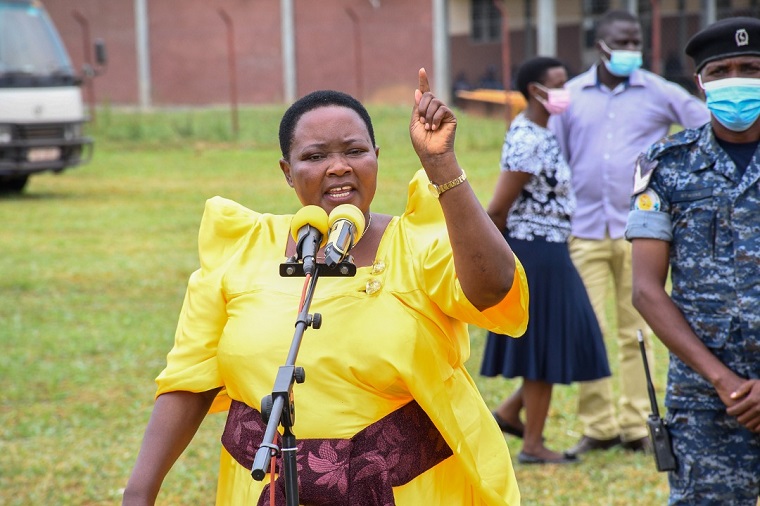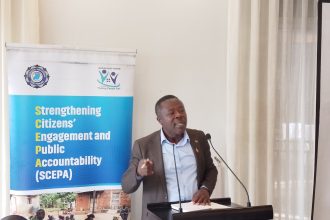The Prime Minister of Uganda, Robinah Nabbanja, has unleashed a scathing attack on the media, accusing them of prioritizing baseless rumors over issues that support the nation’s progress. In her sharp response to these allegations, she denied any conflicts with members of her cabinet and labeled those spreading such stories as saboteurs.
Nabbanja’s frustration was evident as she exclaimed, “I’m tired of negativity. Please allow me to do my job.” She continued, “I have not clashed with any minister. Stop propagating unfounded rumours. I understand it may boost your news sales, but my request to you is to cease these rumors and let me carry out my duties.”
These remarks came during an event where young girls took part in the “Take a Girl Child to Work Day” at her office. This symbolic occasion aims to inspire young girls by letting them assume the role of an influential figure in society, encouraging them to aspire to a brighter future and break free from societal constraints holding women back.
Nabbanja became the first female Prime Minister of Uganda on June 21, 2021, following her formal confirmation by the Parliament since the country’s independence in 1962.
During the event, Celestine Mugenyi, representing the girls, appealed to the government to reconsider its policy on providing sanitary pads to girls. She claimed that the high cost of sanitary pads forces some girls to engage in early sexual activities to afford them. Mugenyi argued, “We seek money from men for sanitary pads because they are very costly. Some of us live with our fathers, and we’re too embarrassed to bring up the topic of pads. So, we go to boyfriends who provide the money but expect something in return.”
She warned of the potential health risks, stating, “This could expose us to HIV and AIDS, all because of the cost of a packet of sanitary pads. If organizations or the government could provide them, this danger would be averted.”
Furthermore, Mugenyi urged the government to address the issue of gender-based violence, emphasizing the need to tackle the problem of sexual violence affecting 22 percent of Ugandan girls. She argued that without addressing these cases, the country would struggle to end teenage pregnancies and school dropouts.
Isaac Obeng, the interim country director for Plan International, highlighted that “Take a Girl Child to Work Day” activities are carried out nationwide to shed light on structural practices that hinder the progress of young girls and seek collective solutions to overcome these obstacles.




















